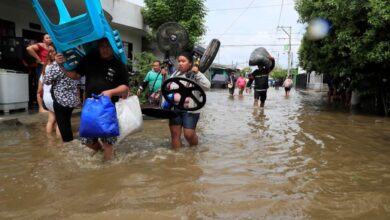The Independence of Colombia Was Forged by Women: Enrique Santos Molano
When you think about the heroines of Independence, names like Manuela Beltrán, Policarpa Salavarrieta, Antonia Santos, among others, come to mind, but the female presence during these feats was much more significant and active.

The Woman Post | Ana Suárez
Listen to this article
Their names not only remained in the fields where countless battles were fought, but they also put on their pants and marked many roads.
Historian Enrique Santos Molano highlighted the role of women during the time of Independence and specified that a colonial vision was maintained, where they had very good participation, not only in housework but also in production and merchandising activities.
Although there are some women that "historians do not mention," many took it upon themselves to highlight the battles waged by men. For example, the strong presence of Santander women stands out, and not only Manuela Beltrán, names such as Ana María Arguello and Toribia Verdugo also stand out, considered the precursor of Women's Liberation.
Women were always very active, and an event to highlight is the Rebellion of the Communards, in this feat, more than 1,000 women participated, but the best-known reference is Manuela Beltrán, who broke the posters, where the tax hike was announced. But, it is important to mention the Black Magdalena, she was a mulatto, she broke the royal shields, which at the time had a lot of power.
The name of Magdalena Ortega is joined by Rafaela Izasi, María de la Paz Enrile and Bárbara Forero, from Santa Fe and very intellectuals, who were also part of a movement led by Cuban Manuel del Socorro Rodríguez, which was called the "Tertulia Del Buen Gusto."
Also read: ESSENTIAL WOMEN IN THE HISTORY OF PSYCHOLOGY
Vigilant Women
Historian Enrique Santos Molano says that women marched behind men to support protests against taxes. "That is how they arrived in Zipaquirá and it was they who gave them food and maintained the Army." Similarly, some marched hand in hand with their children.
For the historian, there are countless women who deserve all the recognition, because, “without them, independence could not have been achieved. They met in the squares to demand their rights and request the resignation of the Viceroys." And he emphasizes, "it was not a few, it was thousands."
They did not handle a speech. They acted! They were always present in the fight. For example, Bárbara Forero led the protests of July 20, 1810, in the Plaza de Bolívar, and urged women to join the struggle for Independence, for this fact, she was exiled to Suesca by Pablo Morillo.
The women of this time opened space and left a series of patriotic and spiritual values, in addition to their integrity and strength. “There were hundreds of women who gave support, and that is the value that must be recognized. Without their participation, so many victories would not have been achieved.”
For Enrique Santos Molano, the most representative women are: Magdalena Ortega, Bárbara Forero and her relative Antonia Santos: "Courageous, combative."





